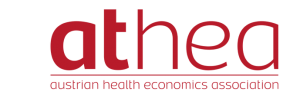A simple definition with a complex meaning
Following a simple definition, health economics is the application of economic principles to health and nursing care. But what is meant in detail is often not very clear.
At its core, it is the economic problem of scarce resources with which health and care systems are confronted. Therefore, it is necessary to ask how society, with the given resources, can achieve the greatest benefit for the individual as well as for the overall population.
On the basis of this basic question, it is already clear that one is scientifically in a field of social tension. It is often difficult to discuss or even think about health in the context of money matters. Ethical concerns quickly arise when economic considerations, such as cost and benefit aspects, are linked to health and care services. The problem is that the reality of limited resources does not disappear by avoiding discussion. On the contrary, ‘looking away’ and ‘not wanting to deal with’ means that society delegates such difficult decisions to those working in health care or patients’ relatives, who thus have to deal with the inadequacy of the system. At the same time, it also means reconciling oneself with the limited means of achieving less than the maximum for the sick and those in need of care.
The findings of health economics clearly reveal necessary changes. However, changes to the status quo require adaptation from stakeholders, touching on political interests and questioning traditions. This often leads to defensiveness and persistence. Only by means of scientifically founded findings, which experience wide acceptance through appropriate communication and traceability, can such system rigidities be overcome.
ATHEA’s view
ATHEA seeks to promote the creation and use of rational arguments in an often irrational discussion. We believe that health economics provides the necessary knowledge base that helps to improve to improve our health care and nursing care systems in the interests of the Austrian population.
We recognize the limits of health economics. Science can provide evidence as a basis for decision-making, but the need for policy assessment remains to varying degrees and this should be based on the best available knowledge base.
We also recognize that a wide range of methods must be used to achieve these goals. We advocate pluralistic theoretical approaches and the use of quantitative and qualitative methods as well as dialogue with related disciplines.
Individuals shape their lives in complex interactions with the social and physical environment. Health and well-being depend on physical, mental and social determinants. We therefore see health care and nursing care and related areas of social work as a field of health economics.
